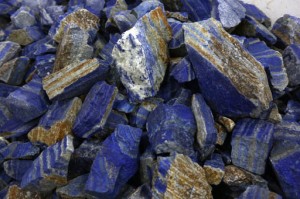Latest News
Watchdog: Afghanistan’s lapis lazuli is a ‘conflict mineral’
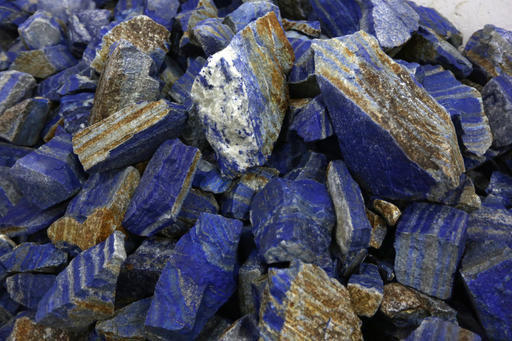
(AP): Afghanistan’s mineral wealth is helping fuel the war that has long ravaged the country, with armed anti-government groups — including the Taliban — earning up to $20 million a year from illegal mining of lapis lazuli, a London-based corruption watchdog said on Monday.
The group, Global Witness, appealed in its new report to have lapis lazuli, a blue stone almost unique to Afghanistan, classified as a “conflict mineral.”
The lapis lazuli mines are mostly concentrated in northern Badakhshan province where the stone has been mined for centuries for use in jewelry and ornaments, prized for its bright blue hues. The province has been “deeply destabilized” by violent competition for control of the mines between local strongmen, law makers and the Taliban, Global Witness said.
Badakhshan is also a microcosm of what is happening across the country, as mining has become the Taliban’s second biggest source of income, after drugs. The Taliban, who have been fighting to overthrow the Kabul administration for 15 years, control the production of opium poppies, mostly in the southern province of Helmand, the raw material for most of the world’s heroin. The drugs trade is worth up to $3 billion a year, experts have said.
Afghanistan’s mineral and petrochemical assets are believed to be worth billions of dollars, but the government does not have the money or expertise to develop them, and international firms are deterred by the deteriorating security situation.
Global Witness said that if properly developed, these assets could earn the government $2 billion in annual revenue. The report says the government lost at least $17.5 million in revenue from lapis lazuli alone in 2014, and $10 million in 2015.
The total earned by armed groups in 2014 was $19.9 million, the group added, noting that a local strongman identified as Abdul Malek had paid $750,000 in protection money to the Taliban out of proceeds from the illegal lapis lazuli mining. Last year, Malek paid the Taliban $4 million, the report says.
Without government regulation or control, mining assets have slipped out of Kabul’s control. Global Witness said the Badakhshan lapis lazuli mines have also become a “strategic priority” for Afghanistan’s Islamic State affiliate, which emerged over the past year mostly in the country’s east, along the border with Pakistan.
“Unless the Afghan government acts rapidly to regain control, the battle for the lapis mines is set to intensify and further destabilize the country, as well as fund extremism,” Global Witness said.
The government banned lapis lazuli mining in early 2015 as the mines could not be secured, Afghan officials have told The Associated Press. But the mining continued with impunity, with local police and politicians reportedly benefiting from the illegal extraction and export of the stone.
Much of the illegal lapis lazuli exports go to China, “where it is prized as jewelry,” Global Witness says. “The fact that Chinese lapis sales are funding the Taliban comes in contrast to the Chinese government’s official position as peace-broker on Afghanistan in regional security talks.”
Beijing is part of four-country consultations with Afghanistan, Pakistan and the United States, aimed at bringing the Taliban into a peace dialogue to end the war.
The Taliban are expected to step up violence this year as their new leader, Mullah Haibatullah Akhundzada, moves to consolidate his position after his predecessor, Mullah Akhtar Mansour, was killed in a U.S. drone strike in Pakistan last month.
If Kabul cannot secure the nation’s vast mineral assets — which also include coal, iron ore, copper, gold, chromite, lithium, onyx, marble, rubies and emeralds — there are fears they will further slip out of state control and into the hands of armed groups with cross-border connections to ensure enormous profits.
In a report last year, the U.S. government’s Special Inspector General for Afghanistan Reconstruction said Afghanistan’s minerals and hydrocarbons sector had the potential to “provide the Afghan government with billions in much needed funds in the coming decades.”
But SIGAR also questioned Kabul’s ability to develop the sector in a sustainable and coordinated way, noting that the $488 million that the U.S. government has invested to help develop Afghanistan’s extractive industries “could be wasted.”

Latest News
Ministry of Defense confirms one dead, 12 injured in chopper crash in Ghor
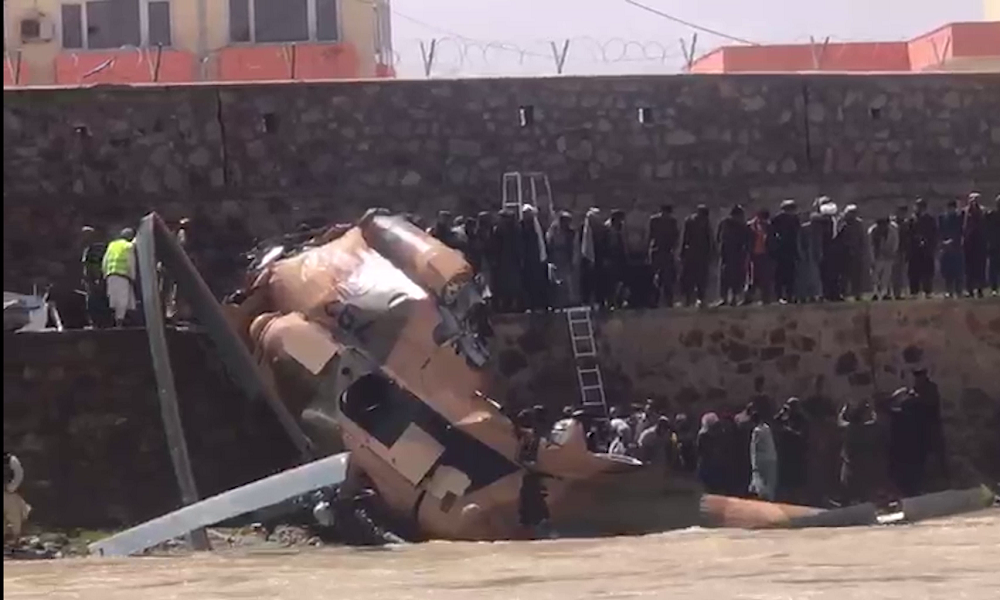
Afghanistan’s Ministry of Defense confirmed Wednesday that one person was killed and 12 were injured when a helicopter crashed in Firozkoh, the capital of Ghor province.
Enayatullah Khwarazmi, the spokesman of the Ministry of Defense, said on X that on Wednesday morning, an Air Force Mi-17 helicopter, which was sent to Ghor province, experienced technical problems and crashed into a wall during an emergency landing.
In footage published by Afghan media, the wreckage of a helicopter can be seen lying in a fast-flowing river, with crowds of people gathered around it.
The spokesman of the Ministry of Defense said the helicopter had been sent to Firozkoh to retrieve bodies of car crash victims.
The spokesman said a car plunged into the Harirod River a few days ago, resulting in the death of a few people.
Latest News
IEA’s political deputy meets with Japanese ambassador
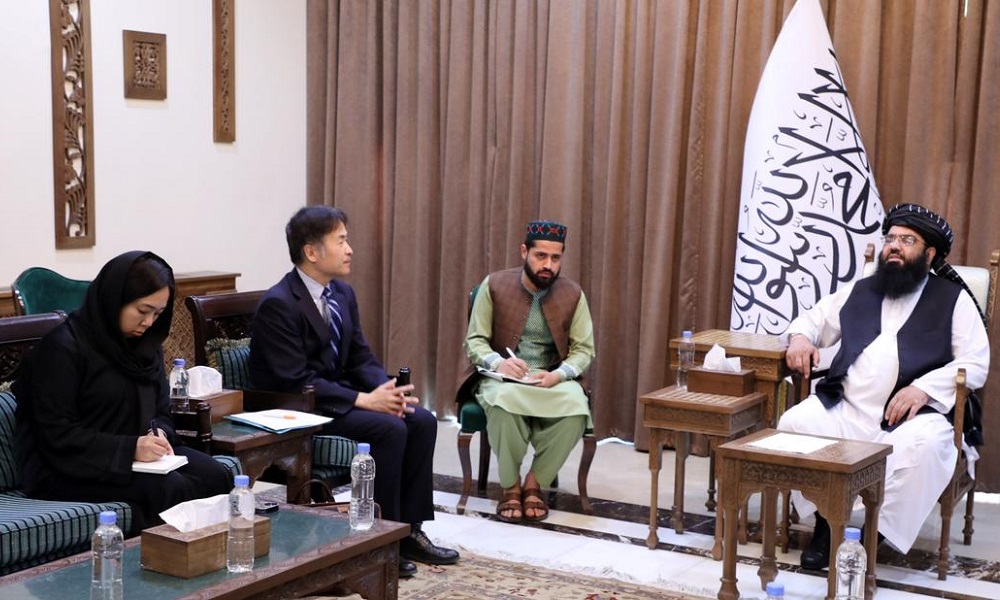
Takeyoshi Kuramaya, Japan’s ambassador to Afghanistan, said in a meeting with Mawlavi Abdul Kabir, the political deputy prime minister, that the lack of diplomatic presence of Western countries in Afghanistan has caused them to be unaware of the positive developments in the country.
According to him, the international community should have direct contact with the Islamic Emirate.
Kuramaya also said Japan is committed to cooperating with Afghans in dealing with natural disasters, treating drug addicts and finding alternative crops for former poppy farmers.
On the other hand, Kabir said at this meeting that due to the support of the people, the Islamic Emirate has been able to ensure national peace, start big projects and make many other improvements.
The political deputy added that the Islamic Emirate is trying to solve people’s problems and wants positive interactions and broad relations with the world.
Latest News
US think tank calls for revised counterterrorism strategy amid growing concerns
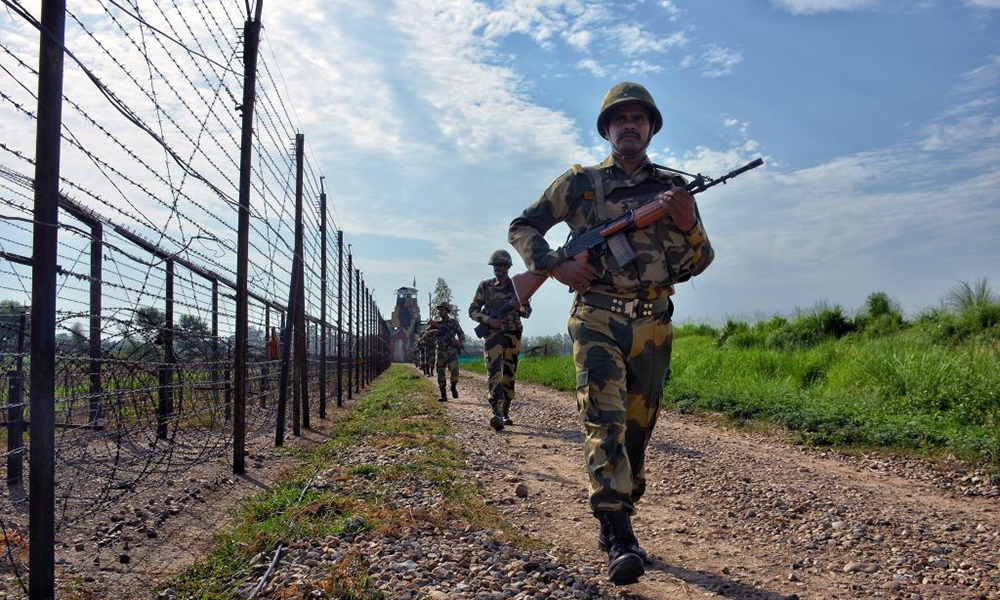
The United States Institute of Peace (USIP) on Tuesday issued a report by the Senior Study Group on Counterterrorism in Afghanistan and Pakistan and highlighted the urgent need to recalibrate the US counterterrorism strategy amid growing strategic competition with China and the ongoing tensions between India and Pakistan.
The USIP report argues that counterterrorism should not be perceived as a distraction from strategic competition but rather as a crucial component in protecting the strategic agenda.
Terrorist groups in Afghanistan and Pakistan still possess the intent and growing capability to target the US and its interests, the report noted, adding that a successful terrorist attack would not only result in tragic loss of lives but also divert resources and attention from strategic competition, undermining America’s credibility and alliances.
In addition, the report stated terrorist attacks originating from the region could spark dangerous regional crises, particularly between India and Pakistan, both nuclear-armed states.
It also stated that the US withdrawal from Afghanistan has emboldened terrorist groups, providing them with opportunities to regroup and collaborate.
ISIS-K (Daesh), for instance, presents a growing threat with a reach beyond the immediate region, while the Tehreek-e-Taliban Pakistan (TTP) has re-emerged as a significant regional security threat, the report read.
The USIP study group meanwhile suggested the Islamic Emirate need to be pressurized “to mitigate terrorist threats while maintaining communication channels for counterterrorism exchanges rather than adopting a cooperative approach with open-ended incentives or a pressure campaign that isolates the Taliban (IEA) entirely.”
The report also suggests increasing military and intelligence resources dedicated to counterterrorism in Afghanistan and Pakistan. This includes improving intelligence, surveillance, and reconnaissance (ISR) capabilities and expanding the US Department of State’s Rewards for Justice program.
The report also emphasizes the need for greater transparency in legal authorities for counterterrorism operations, ensuring actions are justified and minimizing civilian harm. This involves targeting terrorist groups planning attacks against the US and employing cyber operations to disrupt their communications.
Another suggestion was the need for enhanced counterterrorism-specific security assistance and intelligence to Pakistan.
This assistance aims to “reduce the TTP’s threat as well as to obtain Pakistani assistance on top US counterterrorism concerns, secure long-term airspace access for operations in Afghanistan, and leverage reliable access in Pakistan in the event of a terrorist attack contingency.”
The report also highlights the importance of improving preparedness for terrorist attacks in the US homeland and abroad, especially in South Asia. This includes enhancing intelligence collection and analysis, providing travel warnings, and securing emergency military operations bases in Central Asia and Pakistan.
-
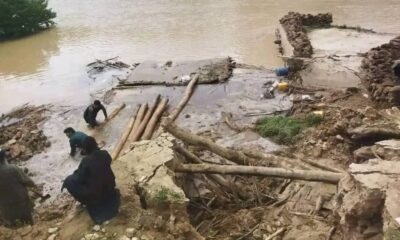
 Latest News5 days ago
Latest News5 days agoHundreds killed and injured in floods in four Afghan provinces
-
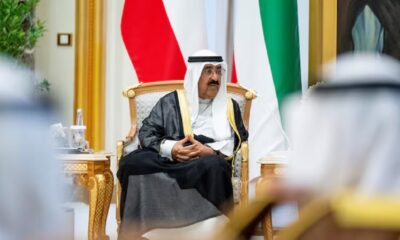
 World5 days ago
World5 days agoKuwait’s Emir dissolves parliament, suspends some constitution articles
-

 World5 days ago
World5 days agoUN General Assembly backs Palestinian bid for membership
-

 Sport5 days ago
Sport5 days agoSorkh Poshan Khafi and Sarsabz Yashlar win in ACL matches
-
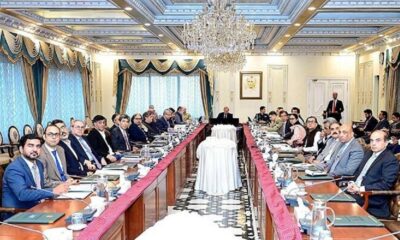
 Business4 days ago
Business4 days agoPakistan: Consultations underway on preferential trade agreement with Afghanistan
-
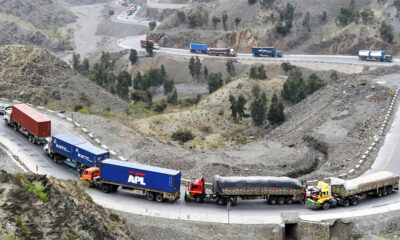
 Business4 days ago
Business4 days agoAfghanistan, Pakistan agree on new travel mechanism for truckers
-

 Business3 days ago
Business3 days agoAfghanistan can become important industrial center in region: Hanafi
-

 Sport4 days ago
Sport4 days agoKolkata down Mumbai to confirm IPL play-off berth

